PRESERVING A MILITARY LEGACY FOR FUTURE GENERATIONS
The following Reflections represents SGT William Walsh’s legacy of his military service from 1974 to 1978. If you are a Veteran, consider preserving a record of your own military service, including your memories and photographs, on Togetherweserved.com (TWS), the leading archive of living military history. The following Service Reflections is an easy-to-complete self-interview, located on your TWS Military Service Page, which enables you to remember key people and events from your military service and the impact they made on your life. Start recording your own Military Memories HERE.
Please describe who or what influenced your decision to join the Air Force.

I wanted to leave my hometown and saw the military as an option. I went to a recruiting station and wanted to speak with someone in the Army since my Dad had been in the Army. No one seemed available, so as I walked around, an Air Force recruiter asked me some questions, then directed me to a recruiter closer to where I lived. I went to him, talked with him, and signed up. I was 17 at the time, so I had to have two adults sign a document or waiver. My Dad signed, but my Mom would not. I had a local official sign as my 2nd adult and could then go.
Whether you were in the service for several years or as a career, please describe the direction or path you took. What was your reason for leaving?
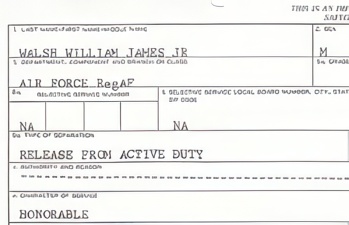
I did not know what I wanted to do, and while in Basic, like others, I took a round of aptitude tests. The Air Force determined my career path, and I am so thankful that it worked out that way. From the people I was in school with to my assignments (Karamursel Turkey, San Vito Italy, Ft. Meade, Maryland) and the other airmen I met, I was very fortunate to have a great job and meet great people. Being selected for the Security Service and the skills, I learned then have served me well in life.
Getting to work at NSA was also a great thrill, and being stationed in that area allowed me to meet my future wife of 42 years. I decided not to stay in the Air Force at the end of my four-year enlistment because I had recently met my future wife, and we had different plans. Yet, at the same time, I look at everything as a “stepping stone” to the life I have today and would not change a thing, place, or event.
If you participated in any military operations, including combat, humanitarian and peacekeeping operations, please describe those which made a lasting impact on you and, if life-changing, in what way?
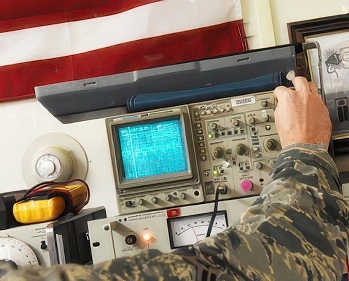
I did not participate in any specific military operations and was fortunate never to be in a combat area. Yet our ongoing mission in USAFSS put us in a position to regularly be involved with local peoples and be involved in activities that helped strengthen ties between the U.S. and our host countries. On top of this, the job itself, because of its top-secret nature, could be present at any moment an opportunity. One such event happened while I was stationed at San Vito in the summer of 1976.
My regular role was to utilize a series of radios to find a specific type of signal. One night, my radio could not find anything on the normal frequencies. Try as I might, I just kept “spinning the dials” and coming up empty. I asked one of my supervisors, Sgt. Ken Williams, for a suggestion, and he handed me a book that listed known frequencies of important cases, which had been inactive for a while. I took the book and began turning the radio dial to frequency after frequency. I don’t remember how long it took, but sure enough, one frequency was active. When we got a fix on it and confirmed it, it was a high-profile case. From that moment on, there was a buzz about it, and many others began flocking to my station. The next thing I know, other supervisors and officers are standing around and discussing the situation. I had to stay a bit longer than normal that morning (I was working the midnight to 8 shift) when my relief came in order to fill people in on what I had done to find that signal.
The next evening though, when I came to my station, I was told that someone of “more experience” would be handling it until that case ran its course. As disappointed as I was, I felt thrilled that I had found such a case. It only went on for a couple of days before the signal finally went silent again, but if I remember correctly, it had something to do with a satellite launch (unknown to us) by a country whose signals we were tracking. That event made a lasting impact on me because it taught me that I could do something that would be of great interest to the defense of our country and that I was competent enough to do the job I was trained for and accomplish something important.
Did you encounter a situation during your military service when you believed there was a possibility you might not survive? Please describe what happened and what was the outcome.
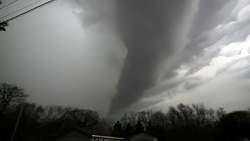
I am blessed to have never encountered a situation that I felt was life-threatening while I was in the military. Although while in technical school training in San Angelo, Texas, we were witnesses to a Tornado, and we could clearly see it barely half a mile from the base. We all huddled in the underground buildings; to my knowledge, no one was injured, and the Tornado disintegrated before doing much damage. However, as we were quickly moving to the underground buildings, the site of that Large Black Funnel cloud did put a scare in me.
Of all your duty stations or assignments, which one do you have fondest memories of and why? Which was your least favorite?
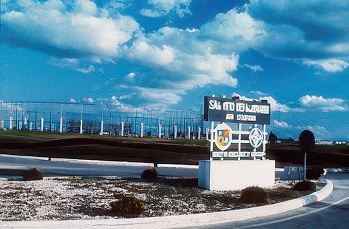
My favorite station was San Vito. The reason is personal: it was there that I learned the Gospel of Jesus Christ for the first time. There, I finally was able to perform my duties, as my first station in Karamursel, Turkey, was put in lockdown soon after I arrived due to disagreements between the U. S. and Turkey. Karamursel never returned as an active base, and I was “stuck” there for my 18-month tour. Fortunately, I was transferred to San Vito with about seven months left on my tour, and of course, it changed my life. The people I met at San Vito were influential in both my professional and private life. It allowed me to play football on our flight team, which went undefeated and won the base championship. It allowed me to be transferred, at the end of my brief stay at San Vito, to Ft. Meade in Maryland, where I eventually began to worship with a small group of Christians in the Annapolis, Maryland area and met my future wife of 42 years.
All of those things to me worked together to make my life what it is today. I do not know if I can say that any of my assignments was “least” in that all provided positive and lasting memories; even when things did not work out as I had hoped they would, they actually worked out better. But I will always be thankful for being assigned to San Vito, as I believe it changed the course of my life for the better.
From your entire military service, describe any memories you still reflect back on to this day.
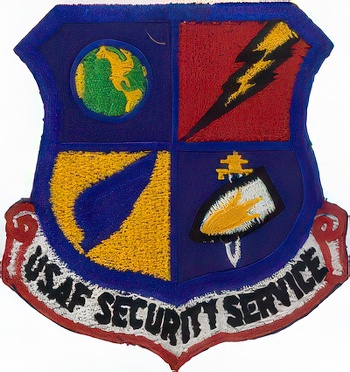
I reflect back on my arrival in Istanbul, Turkey, and the shock of a foreign culture. I reflect back on my first couple of days at Karamursel and the amount of change that occurred in my life. I reflect on the lock-down situation which unfolded at Karamursel and how I was given different and challenging roles to fulfill (Security Policeman, Mail Sorter / Distribution at the USAF facility at the Istanbul airport, learning to run a movie projector to show TV shows at the Recreation Center). Showing the movies at the Recreation center was a thrill for many people, as the Turkish authorities had shut down the base theater.
Over 25 years later, while living in Tennessee, I got a phone call one day from a woman who had tracked me down through an advertisement for a local Gospel Meeting. I was going to Ohio, and the congregation I was going to be working with for a week had advertised my coming in the paper. She saw it, got information about me, and called me. She had been at Karamursel as a dependent. She remembered how they looked forward to the TV show’s Monday nights and Tuesday nights and how important that was to their morale. It made such an impact on me knowing about that. So many stories, too many to tell. The experience of working at NSA. The blessing of being in the Annapolis area to meet my (future) wife. Simply put, I am truly blessed that I was able to be in the Air Force at the time I was and to experience that brief life because of the impact that it still has on me to this day.
What professional achievements are you most proud of from your military career?
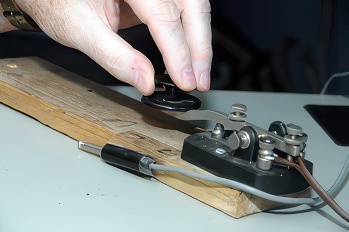
Simply being able to fulfill my responsibility in a manner that was professional and did not detract from our mission was something to be proud of. To find a case that was a top priority was something I will never forget.
Passing my tests, especially in getting through Morse Code in record time (gaining me a three-day pass in recognition), was something I will never forget. I would not say that my career was extraordinary in any way, but I will say that it was genuinely satisfying and impacts my life to this day.
Of all the medals, awards, formal presentations and qualification badges you received, or other memorabilia, which one is the most meaningful to you and why?
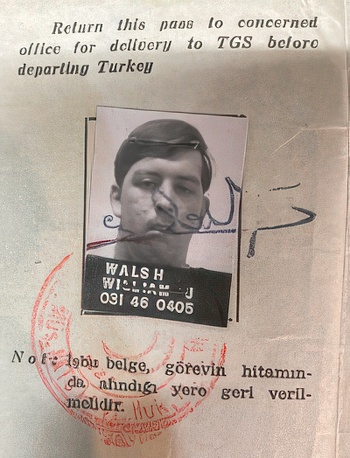
The one most meaningful to me is the recognition and 3 (or maybe 4) day pass I received for getting through Morse Code class in Technical school training. I was failing, and the instructors had already decided I should wash out. After two days of class, I could not grasp getting Morse. I returned to my room at the end of the day, feeling dejected. I was fortunate that I was not in a dorm with my classmates. I had arrived at the base after most of my contemporaries due to waiting to get my security clearance.
Therefore, I was put in a “temporary” dorm where I was the only airmen with several other sergeants. When I returned that second day, one of them was in the dorm. We talked for a bit about my situation. He came up with a solution. When he was in high school, he could not hit a fastball. His father rented a pitching machine, had it set to the fastest speed, and made him try to hit the ball. Then, he began to slow it down, and this sergeant (I seem to recall his name as Dennis) was able to “catch up” to the ball and hit it. He learned that the speed he eventually was hitting was faster than the average fastball of pitchers his age! He suggested we try a solution like that: get a tape of Morse Code at high speed, and have me listen to it repeatedly until I could pick out the different characters and then slow it down. We worked all night on that.
The next day, when I went to class, I passed test after test. (You were only required to pass two tests in a row to pass out of the class). My instructors would not let me leave, believing I was somehow cheating. I had passed four straight tests. They dismissed the class at lunchtime and made me stay. They then made me take another test. Thankfully, I passed it. I remember the look on their faces when I told them what I had done. I also remember their comments, “Looks like we have to let him pass on …” They seemed almost disappointed as their experience had shown them that I was not a good candidate to pass, and now they were wrong! I moved to the next level of Morse Training and used this same solution to once again pass out of the course first and be recognized for it. I have tried to use this same solution in other areas of life to help me whenever I am in a jam. I am so thankful that after arriving late, I was put in the dorm where Dennis was, and he was willing to help me and change my life by doing so.
Which individual(s) from your time in the military stand out as having the most positive impact on you and why?
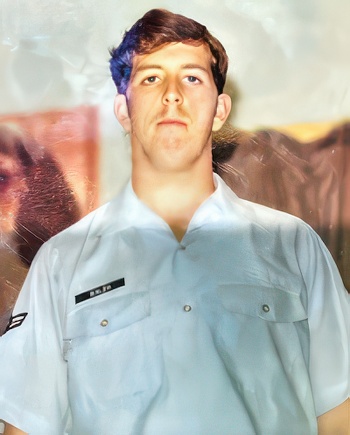
I can think of two: Bill Bucci and Ken Williams. Bill, because while stationed at KCDI, he took an interest in me and my welfare. We worked out together each day, running, playing Racquetball, and dieting. I was very overweight and was immediately put on the “weight loss” program at KCDI as soon as I arrived. Bill was a sergeant from my neck of the woods (New England), so we got along well. I was willing to listen and do whatever it took to lose the weight. Bill was knowledgeable and fun. He “tricked” me into running my first mile by laying out a course that he told me was 1/2 a mile. Once completed, he let me know that I had just run a mile and that if I could do that, I could do it again. Before you know it, we were running 4 miles each day.
I had never played Racquetball, but Bill taught me to play, and it was a passion I had for many years. I will forever be thankful to him for all his help. Ken Williams was my immediate supervisor on a flight to San Vito. Although a sergeant, he was friendly and did not look down upon me. There were many nights when doing my job would be difficult as not many signals could be found (“Nil Heard”), and Ken would always provide helpful suggestions, especially on one occasion; his suggestion provided an essential find of a previously dormant significant signal. He invited me to his home for Thanksgiving dinner, and we developed a friendship that lasted through the years, even to the point of his inviting me back to attend a graduation ceremony of airmen in San Antonio, Texas, when he retired there; as a General! Both of these men helped me when I was in need of friendship and guidance and made a positive impact on my life.
List the names of old friends you served with, at which locations, and recount what you remember most about them. Indicate those you are already in touch with and those you would like to make contact with.
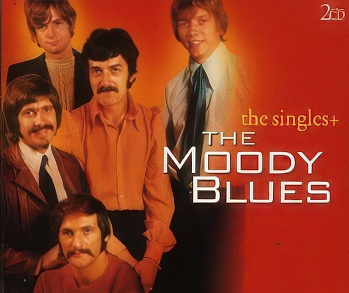
I remember Robert Glatt and Bill Bucci from when I was stationed at Karamursel in Turkey. Both simply helped me by being a friend and someone to “hang” around with. I still email Bill today. I remember Ken Williams, Paul Seese (sp?), and David Shaw from San Vito. I am still in contact with Ken today because of his friendly attitude and ability to help make suggestions, which helped me in my job while on the OPS floor. Paul and David as they were instrumental in helping me to learn the Gospel, and I then worshipped with them. Many fond memories of that time in Italy. I remember Mike Boudreau from Ft. Meade at NSA.
Mike was instrumental in teaching me the finer aspects of Ice Hockey. I could skate but not play well. We were both from Boston, and he was a big scorer in Boston School Boy Hockey. His willingness to instruct me helped me to play the game at a higher level. It also helped me when we joined a team together in Maryland, and I made 2nd team all-star on Defense! After that, I was able to play Ice Hockey, and Roller Hockey well into my early 40’s on regular teams or pick-up games wherever I lived (Virginia, Ohio, and Mississippi). I have had contact with Mike within the past couple of years on FB.
There is another individual I remember, but I am not sure I have his name right: Brian Haydn. I believe he was from Missoula, Montana, and he was in the room next to me while I was at training school at Goodfellow AFB. It seemed each day I would return from my class, and Brian was on his bed, large earphones over his head with a long cord all the way over to a stereo. He was often reading and listening to music. One day I simply asked who he was listening to; he told me, The Moody Blues and asked if I wanted to listen. Yes. And from that moment on, I was a huge Moody Blues fan. I bought every album I could. Later in life, I even attended several of their concerts. Maybe that is not a big thing to some, but that music has been so enjoyable to me over the years. I know there were others that I met along the way, and I wish I could remember their names, but these are the ones easiest for me to remember because of their day-to-day impact on my life.
Can you recount a particular incident from your service, which may or may not have been funny at the time, but still makes you laugh?
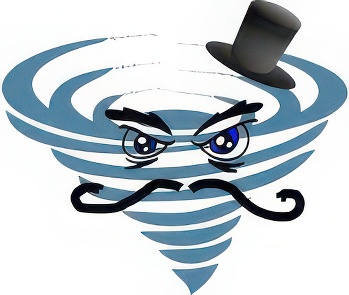
I was always on the lookout for “tricks” being played on airmen. I did not want to be made to look like a fool. When I arrived at my training assignment at Goodfellow AFB in San Angelo, Texas, I arrived after my classmates while waiting at Lackland on my security clearance. While they were all assigned dorm rooms, I arrived late on a Friday evening and was placed in a “Temporary” or transient dorm. This was more of what later would be popular in colleges, where there are several rooms – in this case, six rooms, sharing a common latrine and a common day area. I was given a room in this setting, and there were three sergeants and one A1c already in different rooms. We each had our OWN room!
While my classmates were in 2 to a room situation, I was on the 3rd floor of a building, on the other side of the base, and had my own room and was loving it. In Texas, it is not uncommon to have harsh weather, such as Thunderstorms and Tornados. Well, one sergeant said I needed to be on Hurricane watch. They provided me with a whistle, an orange vest, and a flashlight. Being on the third floor, there was a ladder outside the door to our rooms which led to the roof. When notified, my “job” was to go to the roof and watch for the Hurricane and then blow the whistle when spotted.
One night, very late, maybe about 2 a.m., I was awakened by a loud bang on my door and told that a Hurricane had been spotted and to get on the roof. I hurried to put my vest on and get my flashlight and whistle. I raced outside, climbed the ladder, and got up on the roof. It was raining. After a couple of minutes, it struck me. Being in south-central Texas, there were no HURRICANES! Yes, I had been had. There was plenty of laughter as I climbed the ladder, egg on my face, ashamed to have fallen for such a trick. Of course, I can look back on that and smile. Those guys were actually really good to me, and other than that, I don’t remember anything negative about that time at Goodfellow.
What profession did you follow after your military service, and what are you doing now? If you are currently serving, what is your present occupational specialty?

I used my GI Bill to go to college after getting married and getting a B.S degree in computer programming. I was fortunate to be living in Richmond, Virginia, and got a job at The Life Insurance Company of Virginia. This was early 1984 when PCs were starting to be used by many. I was involved in programming PCs in the BASIC language. After a while, I wanted to do training and was placed in a group that did that. I found I enjoyed instructing.
Meanwhile, I was preaching “part-time” for two small congregations, one in Fredericksburg, Va. and the other in Lynchburg, going to each group monthly. In 1988 my first child (son) was born. Preaching part-time, having a son, and being involved in training became a focal point when I believed that I should do more, so I gave up my position at Life of Virginia to become a Minister and Preach “full time.” I moved to Columbus, Ohio, then Petal, Mississippi, then back to Northeastern Ohio (Barberton), then down to Mt. Pleasant, Tenn., and currently, since 2011, I have been living in Tompkinsville, KY.
What military associations are you a member of, if any? What specific benefits do you derive from your memberships?
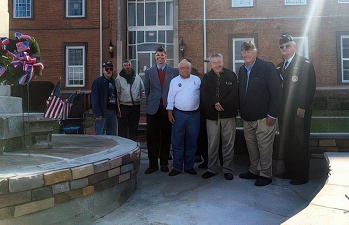
I have been a member of the American Legion since the mid-1990s. I am currently the Adjutant for the James Chism American Legion Post in Tompkinsville, KY.
In what ways has serving in the military influenced the way you have approached your life and your career? What do you miss most about your time in the service?
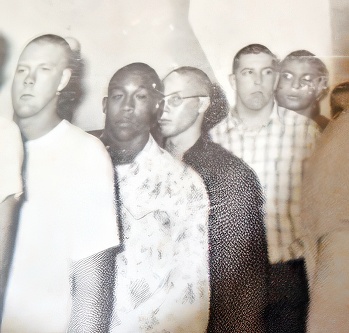
Being in the Military taught me Discipline and the need to analyze situations. It taught me the importance of Teamwork. It allowed me the opportunity to travel to foreign countries and experience different cultures. It pushed me to do things I did not feel comfortable with (not in an evil or immoral way) and yet simultaneously reveal a greater ability than I knew I had.
What do I miss most? Friendships made. Shared experiences. Simpler times.
Based on your own experiences, what advice would you give to those who have recently joined the Air Force?
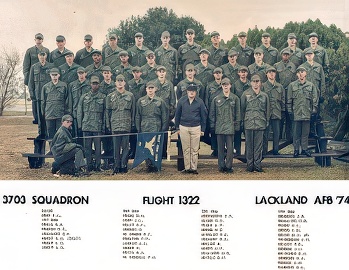
My advice would be to open your eyes, open your ears, and close your mouth. Listen attentively and watch what is going on around you, as it will someday become of great value. Develop friendships. Share your abilities with others, who can share theirs with you, and both of you will grow. Don’t be afraid to “stretch” yourself. Don’t take the easy way out. Keep Records of Everything!
If you have a chance at an overseas assignment, take it. You will grow in ways that you can’t imagine. I believe all young people should experience leaving our shores to visit a foreign land so that they can see the similarities that we share with others and realize how truly blessed we are to live in such a country. If you do your best, no matter what others do, you will never regret it.
In what ways has togetherweserved.com helped you remember your military service and the friends you served with.
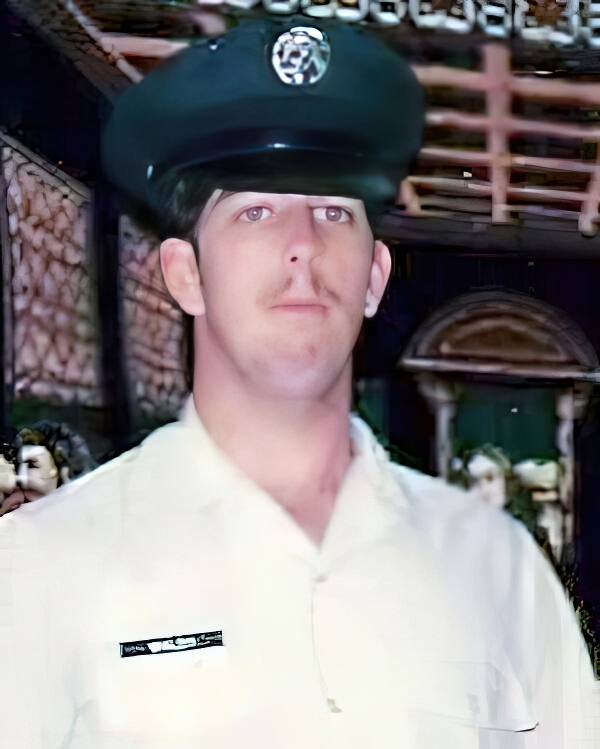
By the simple actions of thinking about them, enjoying remembering them, and realizing how blessed I was to be in the Air Force at the time I served and how it shaped my life in ways I could never imagine.
PRESERVE YOUR OWN SERVICE MEMORIES!
Boot Camp, Units, Combat Operations
Join Togetherweserved.com to Create a Legacy of Your Service
U.S. Marine Corps, U.S. Navy, U.S. Air Force, U.S. Army, U.S. Coast Guard

0 Comments